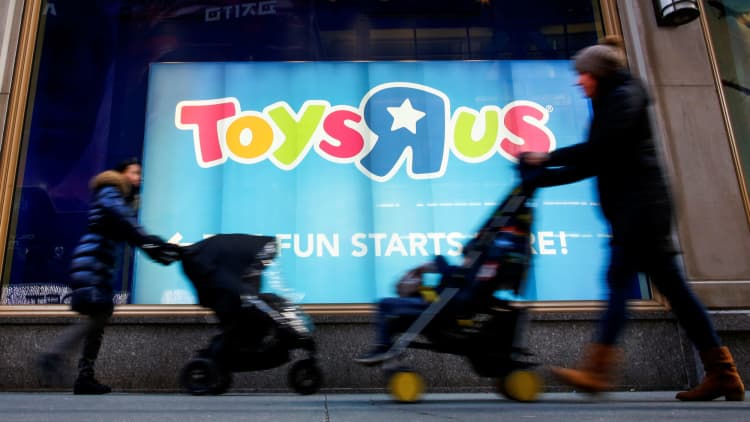Barbie and Thomas the Tank Engine could be Hollywood's next hottest rising stars if Mattel's new CEO Ynon Kreiz has his way.
The entertainment executive, which took over Mattel in April, wants to take the struggling company's iconic toy brands and expand them into other potentially money-making areas.
"Mattel is the owner of one of the strongest catalogues of children and family entertainment in the world, think Barbie, Hotwheels, American Girl, Fisher Price, Masters of the Universe, Thomas the Tank Engine ... Ageless, timeless, generational, iconic brands," Kreiz told CNBC's "Squawk on the Street" on Tuesday. Kreiz said he wants to restore Mattel to being a "high-performing" toy company and to capitalize on its intellectual property by expanding into film, television, live events, video games and consumer merchandise.
Mattel's shares are down 8 percent so far this year to about $14 in midday trading Wednesday. It's been a steady slide down from their five-year peak of $47.82 a share in 2013, according to data compiled by FactSet.
Mattel announced in September that it created a new division aimed at developing and producing movies based on its iconic brands called Mattel Films. The division is run by Academy Award-nominated producer Robbie Brenner, known for her work on "Dallas Buyers Club," "Mirror Mirror" and "The Fighter."
Mattel is dwarfed by rival Hasbro, which has a market cap of $12.9 billion, more than double that of Mattel. Hasbro shares are up nearly 12 percent over the past year to about $101 per share. Mattel's market cap stands at $5 billion.
Hasbro has excelled in taking its properties and translating them to successful television shows, movies and online videos. Theatrical releases of its "Transformers" films alone have grossed more than $4.37 billion at the international box office.
Hasbro Studios also produces online shows, including "Littlest Pet Shop," "My Little Pony" and "G.I.J.O.E.," which each has its own line of toys.
Mattel has also ventured into web series, launching online shorts with brands such as Barbie, Monster High and Polly Pocket. Its most famous doll, Barbie, has even been featured in a number of home-release films but has yet to grace the big screen in a Mattel-produced film. (She did appear in Pixar's "Toy Story 2" and "Toy Story 3.")
This entertainment push is not unexpected from Kreiz. He is the former CEO and chairman of Maker Studios, which was sold to The Walt Disney Company in 2014. Prior to that he was the chairman and CEO of Endemol Group, one of the world's largest independent television production companies.
Earlier in his career, Kreiz co-founded Fox Kids Group Europe, a children's entertainment company, which was also acquired by Disney in 2002.
Despite Kreiz's background, there certainly is risk to the new strategy. Hasbro, for example, aborted its attempt at operating a cable television network in partnership with Discovery. After the network failed to gain traction against The Disney Channel and Nickelodeon, Hasbro sold off the majority of its ownership.
Like the rest of the U.S. toy industry, Mattel has suffered with the liquidation of retailer Toys R Us. The closure of its biggest customer dented its gross sales by 10 percent in the second quarter, according to the company.
"The Toys R Us situation is unique to the Toys R Us situation," Kreiz said. "The industry is actually growing. We're seeing increasing demand and the other retailers are moving in."
Mattel has faced slowing sales in the last few years as more children gravitate toward video games and electronics instead of traditional toys. It has also been hit hard by the bankruptcy of Toys R Us.
Despite overhauling the company's management team, suspending its dividend and developing plans to cut $650 million in costs, the maker of Barbie and Hot Wheels has been unable to revive sales. In July, the company said it would be cutting 2,200 jobs, or about 22 percent of its global non-manufacturing workforce. These job cuts come just months after Mattel said it was shuttering its New York office, affecting about 100 employees.
This article was updated with more details about Mattel's growth strategy.



